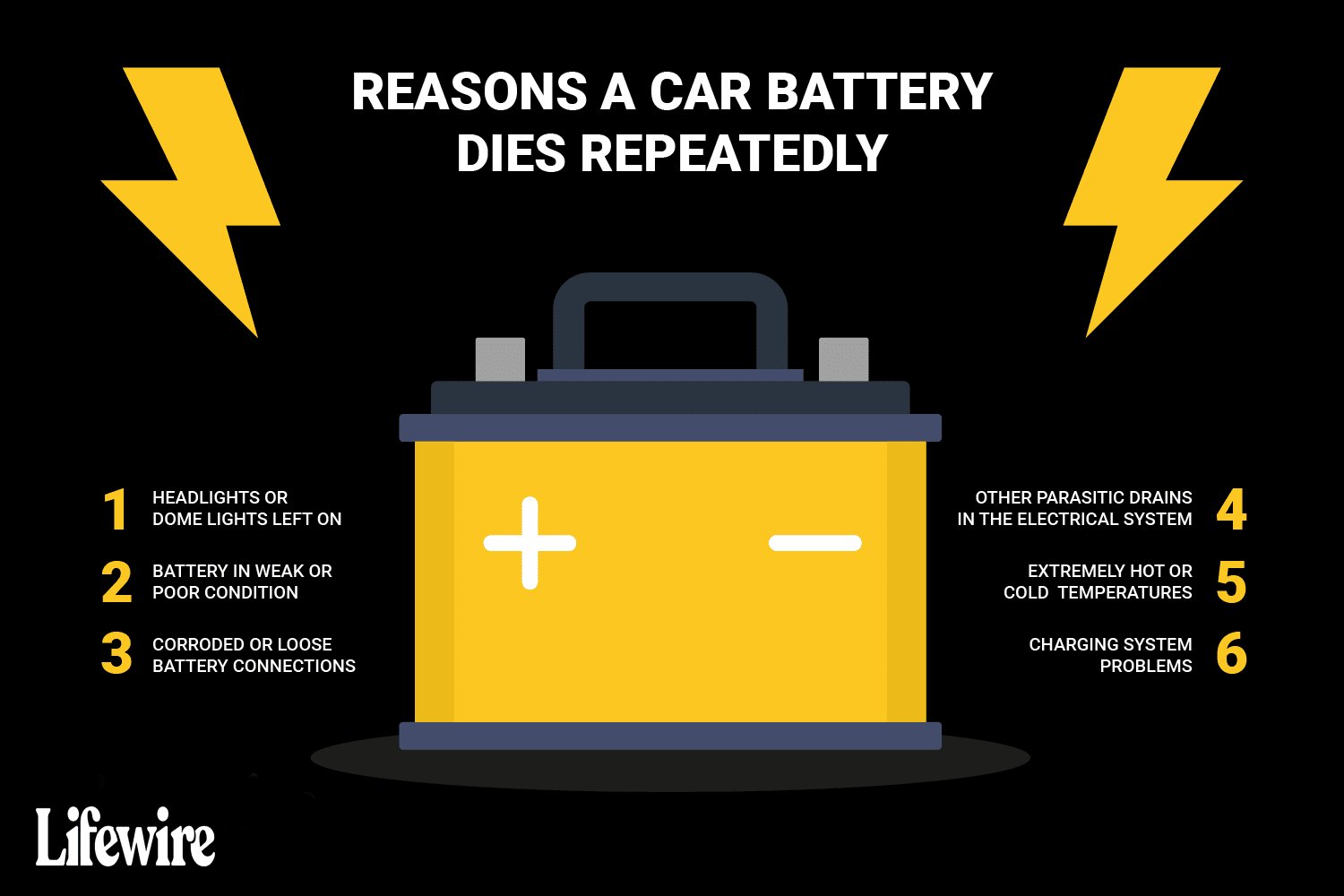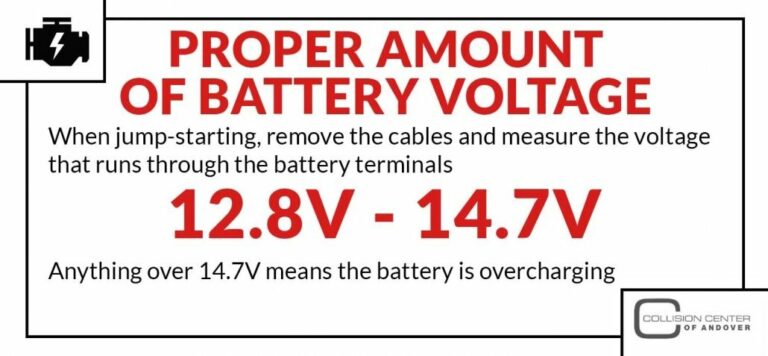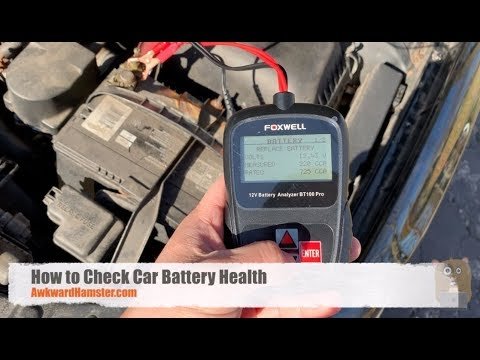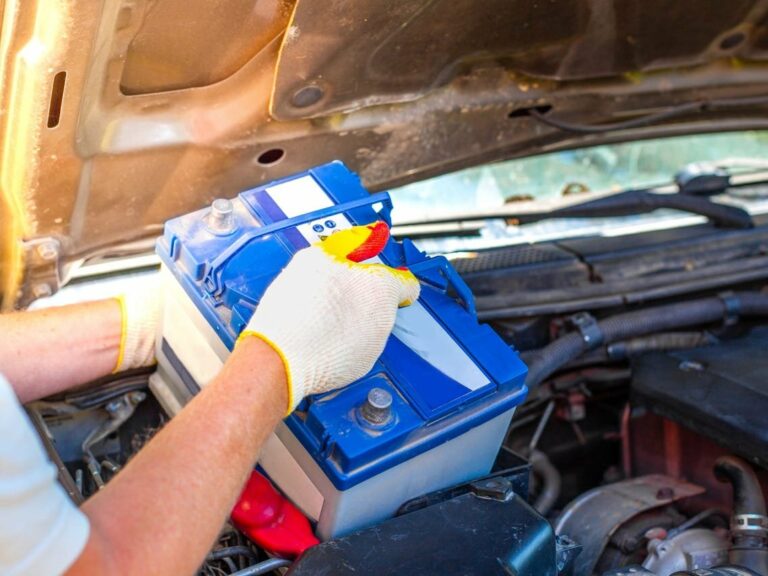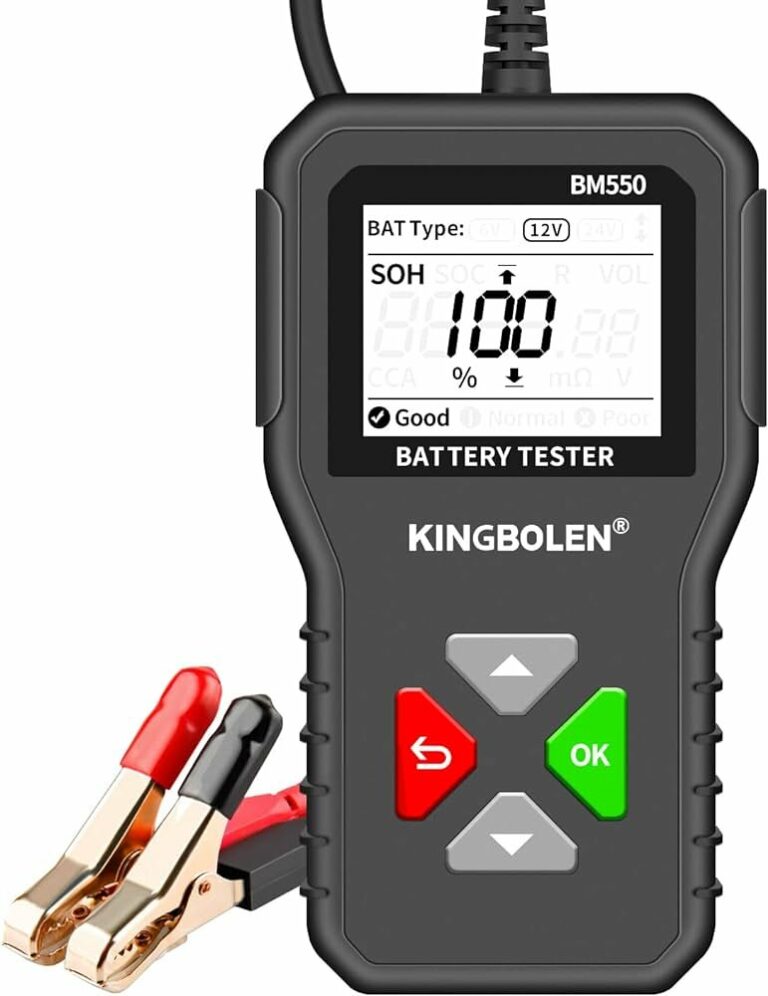How to Prevent Car Battery from Dying
Today we discuss How to Prevent Car Battery from Dying. Experiencing the silence after turning the key in your car and finding a dead battery can be incredibly frustrating. It has the power to disrupt your plans and leave you feeling stranded. However, there’s no need to worry, as I’m here to provide some useful advice on avoiding a dead car battery.
By implementing these straightforward yet impactful recommendations, you can maintain a charged and reliable car battery, ensuring that your vehicle is always ready to go when you need it. Let’s explore these tips together to keep your car operating smoothly and free from any unforeseen issues!
How to Prevent Car Battery from Dying?
Car batteries are crucial for vehicle operation, supplying power to start the engine and operate electrical systems. Battery failure is a common problem that can cause inconvenience. To prevent this issue, it’s vital to learn how to maintain a healthy car battery. This guide offers strategies and tips for battery maintenance.
Regularly Inspect and Clean the Battery:
Visual Inspection:
When it comes to preventing car battery failure, regular inspection is crucial. Start by visually assessing the battery for any signs of damage, such as cracks, leaks, or corrosion. If you notice any of these issues, it’s important to address them promptly to prevent further damage.
Cleaning the Battery:
Over time, corrosion can accumulate on the battery terminals, hindering its performance. To clean the battery, follow these steps:
- First, disconnect the battery terminals, starting with the negative (-) terminal.
- Mix a solution of baking soda and water to create a paste-like consistency.
- Use an old toothbrush or a battery cleaning brush to scrub the terminals and remove any corrosion.
- Rinse the terminals with clean water and dry them thoroughly.
- Reconnect the terminals, starting with the positive (+) terminal.
Avoid Excessive Use of Electronics When the Engine is Off
The Impact of Electronics on Battery Life:
Modern vehicles are equipped with numerous electronic devices that rely on the car battery to function. However, using these electronics when the engine is off can drain the battery quickly.
Minimizing Battery Drain
To prevent unnecessary battery drain, follow these tips:
- Avoid leaving headlights, interior lights, or cabin fans on when the engine is off.
- Unplug any electronic devices or chargers that are not in use.
- Be cautious when using power-hungry accessories such as heated seats or audio systems when the engine is off.
- Consider using a portable jump starter to power your devices instead of relying solely on the car battery.
Drive Your Vehicle Regularly:
The Importance of Regular Driving
Frequent driving allows the car’s battery to recharge fully. If a vehicle is left idle for extended periods, the battery can gradually lose its charge.
Short Drives and Battery Health:
Short trips, especially those under 20 minutes, may not provide enough time for the battery to fully recharge. This can lead to a cycle of constant drain and insufficient recharge, ultimately shortening the battery’s lifespan.
Long Drives and Battery Recharge:
Long drives, on the other hand, allow the alternator to recharge the battery fully. If possible, try to take regular longer drives to maintain a healthy charge in your battery.
Check Charging System and Alternator:
Understanding the Charging System:
The charging system, consisting of the battery, alternator, and voltage regulator, is responsible for maintaining the battery’s charge while the vehicle is running.
Regular Inspections:
To prevent battery failure, have the charging system and alternator inspected regularly. A malfunctioning alternator can cause the battery to drain, leading to premature failure.
Park in Shade and Protect from Extreme Temperatures:
Extreme Temperatures and Battery Performance:
Extreme heat or cold can significantly affect the performance and lifespan of a car battery. High temperatures can cause the battery fluid to evaporate, while freezing temperatures can reduce its capacity.
Parking in Shade:
Whenever possible, park your vehicle in a shaded area to minimize exposure to direct sunlight. This helps regulate the temperature of the battery and prevents unnecessary strain.
Using Insulation:
In extreme cold conditions, using an insulated battery blanket can provide protection and help maintain optimal battery performance.
Disconnect Battery When Vehicle is Not in Use:
Long-Term Storage:
If you plan to store your vehicle for an extended period, it’s recommended to disconnect the battery. This prevents any parasitic drain and ensures the battery retains its charge.
Disconnecting the Battery:
To disconnect the battery, follow these steps:
- Start by turning off all electrical systems in the vehicle.
- Locate the negative (-) terminal and loosen the clamp using a wrench.
- Carefully remove the negative battery cable.
- Repeat the process for the positive (+) terminal, if desired.
Get Regular Battery Inspections and Maintenance:
Professional Battery Inspections:
To ensure optimal battery health and prevent unexpected failures, it’s advisable to have your battery inspected regularly by a professional. They can check the battery’s performance, conduct load tests, and identify any potential issues.
Battery Maintenance:
During inspections, technicians can also perform necessary maintenance tasks such as cleaning terminals, checking fluid levels (in applicable batteries), and ensuring proper battery installation.
EASY FIX! Car Battery Keeps Dying? How to fix in 1 minute
Faqs for How to Prevent Car Battery from Dying:
How can I prevent my car battery from dying?
To prevent your car battery from dying, you can follow these steps:
How often should I drive my car to prevent the battery from dying?
It is recommended to drive your car at least once a week, especially for short trips, to keep the battery charged. Regular use will prevent the battery from getting drained and help maintain its health.
Should I turn off all electrical accessories when parking my car?
Yes, it is advisable to turn off all electrical accessories, such as headlights, radio, and air conditioner, before parking your car. Leaving them on can drain the battery over time, increasing the risk of it dying.
What should I do if I’m going on a long vacation and leaving my car behind?
If you’re leaving your car for an extended period, it’s best to disconnect the negative terminal of the battery or use a battery maintainer. This will prevent any gradual drain on the battery and ensure it remains charged when you return.
Are extreme temperatures harmful to car batteries?
Yes, extreme temperatures can be detrimental to car batteries. Both extremely hot and cold temperatures can affect the battery’s performance and lifespan. If possible, park your car in a garage or shaded area to minimize exposure to extreme temperatures.
Can using electronic devices while the engine is off drain the battery?
Yes, using electronic devices such as phone chargers, laptops, or portable DVD players while the engine is off can drain the car battery. It is recommended to limit the use of such devices when the engine is not running or keep the engine running if you need to use them for an extended period.
Final Thoughts
To prevent car batteries from dying, implementing regular maintenance and following a few simple steps can significantly extend its lifespan. Firstly, ensure the battery is securely fastened and free from corrosion. Secondly, limit short trips and avoid leaving lights or other electrical devices on when the engine is not running. Thirdly, minimize the use of power-consuming accessories, especially during periods of idling. Additionally, keeping the battery clean, checking the charging system regularly, and storing the vehicle in a cool, dry place can also help prevent battery failure. By following these preventive measures, you can effectively avoid a dead car battery and enjoy a hassle-free driving experience.
